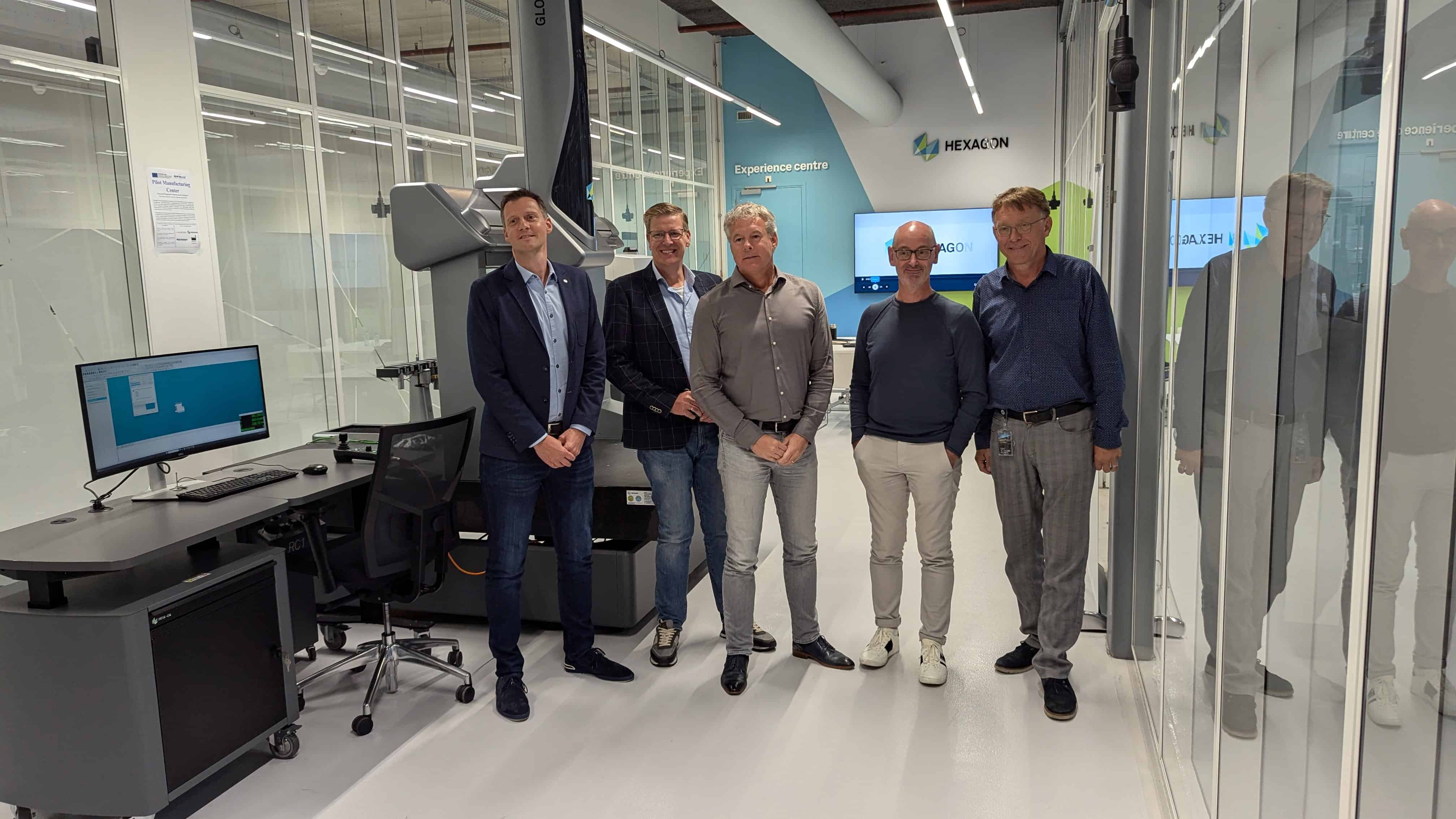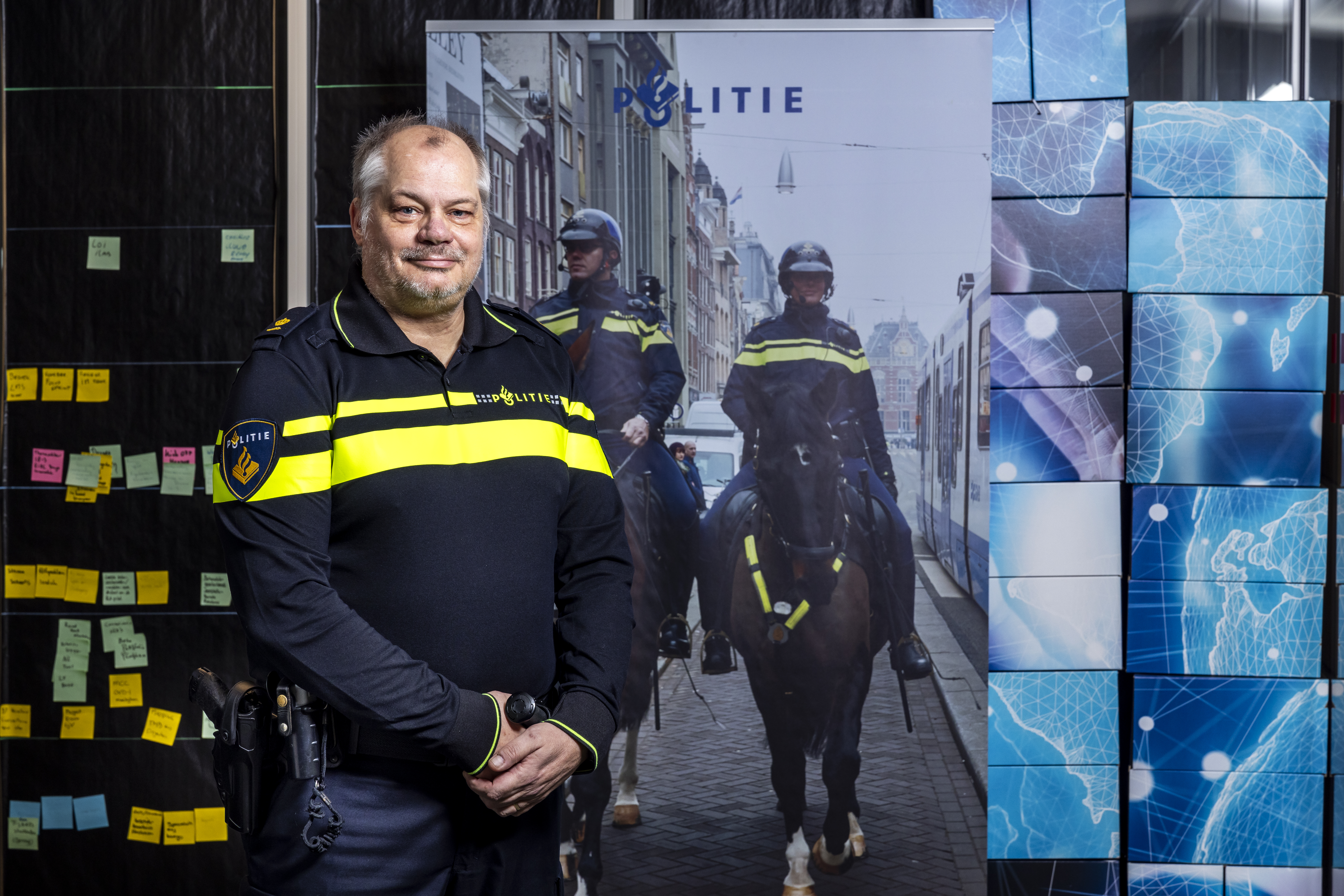
Photonics is a promising technology in almost all sectors, today and in the future. Numerous scientists are exploring the possibilities of this light technology. But what use is it to companies in other industries? How will they apply photonics? That’s what Photonics Applications Week is all about. A week full of workshops, congresses, exhibitions, lectures and debates aimed at showing professionals from a variety of disciplines what photonics can contribute to their sector.
The Photonics Applications Week opens on 30 September.
“The world of photonics is currently very inward-looking. Scientists are constantly trying to research and improve the technology. Logically, the focus is on the technology itself,” says Pieter Hermans, owner of Jakajima, matchmaker for innovators, and organizer of this event. “But taking steps towards application areas, such as agrifood and health care, is not easy. Often photonics researchers simply don’t know many professionals from other fields. Moreover, they hardly know precisely what these professionals need in order to use the lighting technology. On the other hand, professionals in health care, for instance, frequently don’t know what photonics are or what they actually entail. That’s why it’s important that the photonics industry focuses on the end user and asks what they do need.” Only then can light technology really make a difference, according to Hermans.
Applications in all sectors
As an example, photonics can provide faster internet and better data centers using a 5G network. In addition, the technology makes it possible to make future faster and more accurate diagnoses. For instance, in the field of ophthalmology, dermatology and cardiology. Sensors based on photonics are also able to reduce food waste. The sensors enable advanced measurement of the conditions of fruit and vegetables, so that adjustments can be made by e.g. changing the temperature in a room or adjusting the oxygen content at the right time. And these are just the potential applications that are already in the picture. More and more new applications of the technology are being added.
Cooperation is essential
In order to realize these applications and discover more possibilities, professionals from these diverse fields and the photonics industry need to work together. “This week is about acquiring knowledge and insights and establishing cooperation and partnerships,” says Hermans. “There are not just going to be photonics researchers coming along, or people who know a lot about it. Precisely the combination with professionals from other sectors, who think that photonics can do something for their field of expertise, makes this event so unique.”
Cooperation in technology is something that suits Brabant very well, according to Hermans. The Photon Delta consortium, which is based in Eindhoven, is also trying to make a connection between this technology and the market. In doing so, they want the ecosystem around integrated photonics, optical chips, to continue to grow. A number of small and larger companies in the Netherlands are developing applications for photonics. Take, for example, the two Eindhoven-based companies Smart Photonics and Effect Photonics.Brabant.

Market demand
According to Hermans, this is a good first step, but we’re not there yet. “Ultimately, integrated photonics (Photonics Integrated Chips) is the ultimate goal,” he says. “First, the technique itself needs to be further developed. Developers need to bear in mind what the market wants.” That is the most important thing. “Otherwise, there will soon be a well-functioning technology, yet no one will use it.”
In order to gain experience in new markets, it is important to not wait until the chips are made available for the applications. “It’s fine if a product comes onto the market that’s not yet fully optimized,” he says. “This just means that there is some money coming into the company’s coffers. In the meantime, they can work with the photonics industry in continuing to improve the equipment so that it becomes smaller, faster and better”. It also allows customers to get used to the product. “The market also has to learn to embrace a product. Think about mobile phones. At first, people didn’t want those devices at all. In the end, the need grew and people bought it anyway.”
External expertise
Compass is a company that is working on this. The digital infrastructure contractor keeps a close eye on innovations and tries to apply these as much as possible in their daily practice. “We want to stay focused on the future. This includes photonics. We look at the technology from the fiber-optic angle as a data communication tool”, innovation manager Ruben van Ardenne explains. “There is an ever-increasing need for large amounts of data. For example, companies want to be able to monitor the maintenance of their equipment and predict their lifespan. They want to have real-time insight into everything. Sensors are very important in this respect.” The company develops several types of sensors in order to be able to meet the needs of their customers.
During Photonics Applications Week, Compass wants to motivate people into thinking about the applications for photonics. “A great deal of know-how is still being held in laboratories and niche markets. We want to roll this out further so that a substantial part of the market benefits from the technology,” van Ardenne says. “And then will most likely be embraced more in the various fields so that new applications will start to emerge.”
Complete products
Van Ardenne hopes to find new partners to liaise with at the event. “There are several isolated companies and researchers who are working on a sensor or a display unit for such a sensor. We have to seek each other out more in order to really obtain a more complete product. This opens up new possibilities.”
Cooperation is a key word during the event and within the entire photonics industry. Organizer Hermans: “Our ambition is to organize an annual event where professionals from the various industries and the photonics industry come together, come up with applications for the technology and work together in order to achieve actual results. This means that they are going to have to discuss questions and solutions with each other in order to be able to take it to a higher level together.”
Are you interested in the world of photonics? Click here for the 2019 Photonics Applications Week program.








